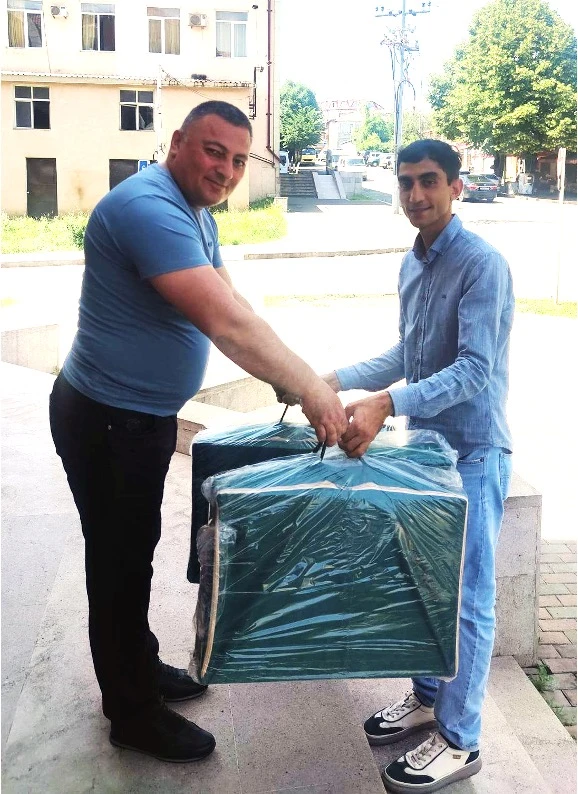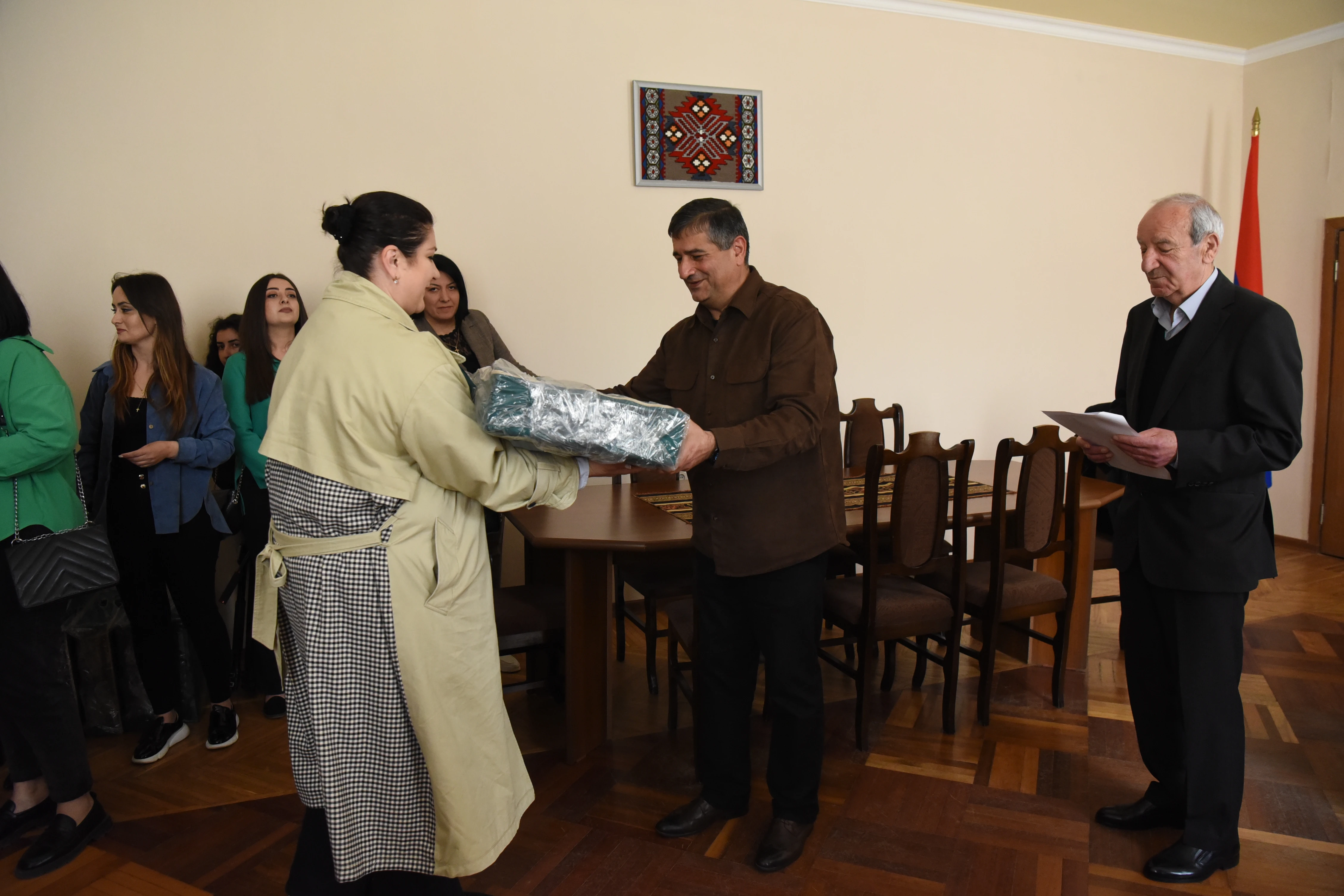Stepanakert, Artsakh -- Tufenkian Foundation staff in Stepanakert recently handed over the final shipment of biology laboratory equipment destined for schools in Artsakh’s Askeran region, completing the first phase of a campaign to outfit all schools in Artsakh with science laboratory equipment. The distribution of these kits has been delayed for months because of fuel shortages caused by Azerbaijan’s illegal blockade.
“Unfortunately, schools in Artsakh have long been under-resourced, with most having no lab equipment for students to learn about the sciences first-hand through experimentation,” stated Greg Bedian, Operations Director at the Tufenkian Foundation. “These kits will help take science out of the textbook and make it a hands-on experience where students can create a real-world association with the information being conveyed.”

The science lab program was initiated in 2021 when all 29 schools in Artsakh’s Martuni region received biology lab kits through a generous gift from Judith Saryan and Victor Zarougian. In 2022, the Foundation decided to expand the program to not only include every school in Artsakh, but to also include equipment for chemistry experiments as well. This expansion was funded through an online campaign on the reArmenia platform, with matching funds provided by Judith Saryan and her siblings in memory of their father, Sarkis Saryan, a noted chemist and scientist.
“We would like to thank all of the donors who helped make this campaign on the reArmenia platform a success, and especially the Saryan families for again providing their generous support,” continued Bedian. “We hope that this new laboratory equipment will help to spur a deeper interest in the sciences and make classwork more engaging and fun for the students.”
Designed to integrate with the 7th-grade biology curriculum, the lab kits support specific assignments throughout the school year. The kits contain a microscope, slides with specimen samples, blank slides, Petri dishes, a mortar and pestle, chemical cups, and other materials that will enable students to collect and analyze their own samples from outside the classroom. The second phase of the campaign, which will provide kits to support the chemistry curriculum for the 7th, 8th and 9th grades, is scheduled to kick off in August just prior to the school year.
The biology kits were originally to be distributed to Artsakh’s schools during the winter break. However, because of the blockade of Artsakh by Azerbaijan, school schedules were interrupted due to a lack of natural gas to heat the schools and the intermittent availability of electricity. Fuel shortages prevented Tufenkian staff from distributing the kits, but the Ministry of Education took on the responsibility for their distribution, beginning in early April with the local schools in Stepanakert. Soon after, kits were distributed to schools in the Martakert and Shushi regions, with the Askeran schools receiving theirs in recent days.
“We would like to thank the Ministry of Education for the crucial role they played distributing the lab equipment,” stated Bedian. “Given the many hardships imposed on Artsakh’s students and their families as a result of Azerbaijan’s blockade, perhaps this upgraded classroom experience can also provide a brief respite from the many serious challenges the students continue to face every day,” concluded Bedian.
